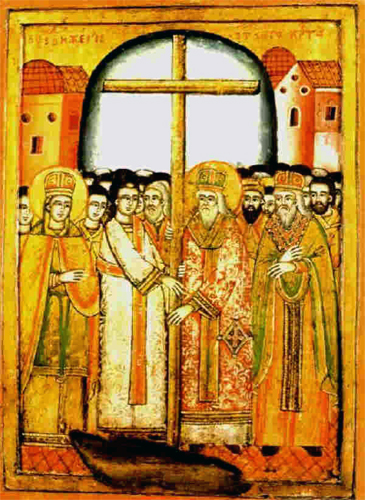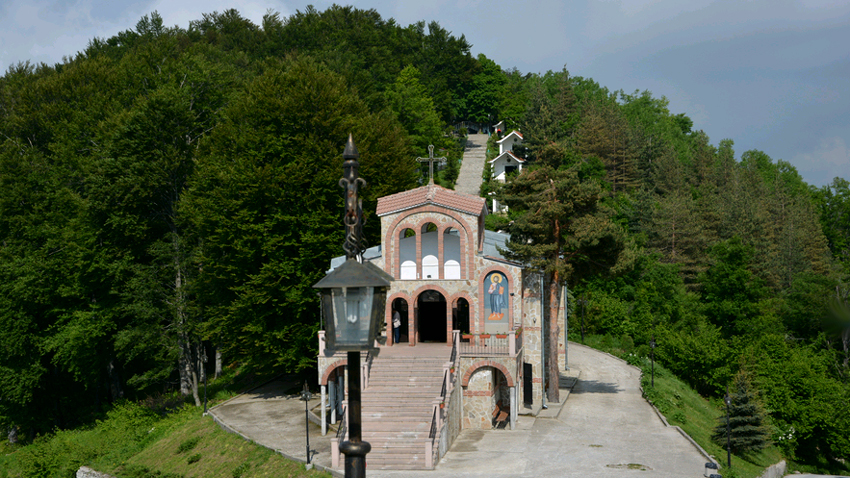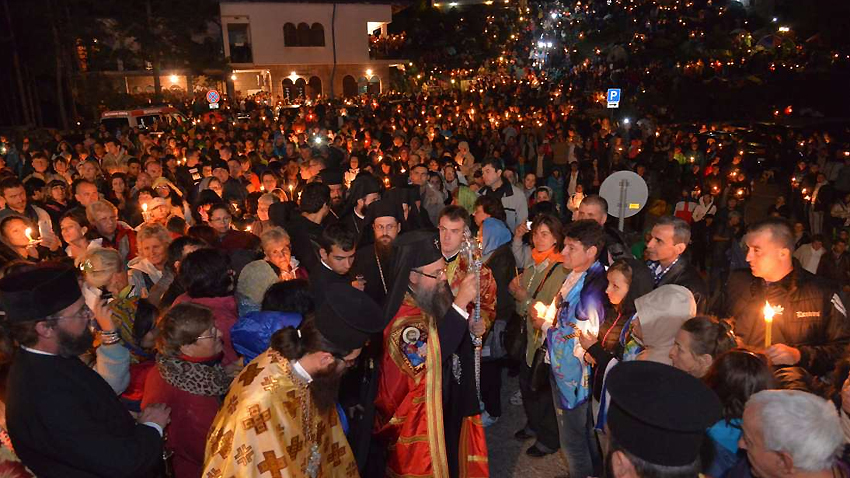On September the 14th the Christian world marks the day of Universal Exaltation of the Precious and Life-creating Cross or the Feast of the Cross.
 According to church tradition, Saint Helena – mother of Emperor Constantine the Great was a zealous Christian. She set out for the Holy Lands in Palestine in search of Christ’s tomb which had been buried by the men persecuting Christians. In 326 her efforts were crowned with success. Helena found the true cross and kept a portion of it which she dispatched to her son; she laid down the cross itself in the church of the Holy Sepulchre in Jerusalem.
According to church tradition, Saint Helena – mother of Emperor Constantine the Great was a zealous Christian. She set out for the Holy Lands in Palestine in search of Christ’s tomb which had been buried by the men persecuting Christians. In 326 her efforts were crowned with success. Helena found the true cross and kept a portion of it which she dispatched to her son; she laid down the cross itself in the church of the Holy Sepulchre in Jerusalem.
The church was consecrated nine years later, on the 13th of September 335, and on the following day, the 14th of September, the cross was brought outside the church so that the faithful could pray before it and venerate it. From that day on, September 14th has been known as the day of Universal Exaltation of the Precious and Life-creating Cross.
In Bulgarian tradition, September 14th is known as Cross Day and is connected with a place in the Rhodopes considered to be sacred – the Forest of the Cross or Krustova Gora. The forest is located in the central Rhodopes, six kilometres from Borovo village on the territory of Luki, close to Krustov Vruh (Cross peak, 1,414 m.), from which it derives its name. Every year, on the night of September 13th and the early hours of the 14th, thousands of believers throng to this mountain peak, on top of which rises the Holy Trinity monastery complex in the hope of supplicating God’s support. Legend has it that a fragment of the cross found by Helena is to be found on the spot where the mountains form a cross.

In fact, this is the spot where the remains of a monastery have been found, probably destroyed during the Ottoman invasion. Before being killed, the monks are said to have hidden the cross underground, though it has never been found.
In our day there is a Christian Orthodox monastery complex on the spot with two churches and fifteen chapels built on either side of a metal cross. On the night before the Feast of the Cross, a divine service is held in one of the churches – the Protection of the Mother of God - after which the thousands of believers gather on the hilltop for a night vigil which ends as the first rays of the sun touch the cross.

By a tradition a strict fast is observed on Cross Day. The day is also connected with the end of summer and the beginning of the autumn farming season.
English version: Milena Daynova
Photos: BGNES, pravoslavieto.com, plovdivskamitropolia.bg and archive
Today, The Bulgarian Orthodox Church honors the memory of Saint John the Baptist, also known as Saint John the Forerunner, because he prepared people for the coming of the Savior. The day dedicated to Saint John the Baptist, known in Bulgaria as..
On January 6, the Bulgarian Orthodox Church is marking Epiphany. According to the Bible, on this day John the Baptist baptized Jesus Christ in the Jordan River. Traditionally, a festive Epiphany liturgy is held in churches, water is blessed, and then..
The fighting for Sofia within the framework of the Russo-Turkish War (1877-1878) began on December 25, 1877. On January 3, 1878, the city's commandant Osman Nuri Pasha began to withdraw from Sofia. His plans to set the city on fire were thwarted..
Archaeological excavations in the Kaleto district of the Bulgarian town of Lom situated on the Danube River have revealed remains of Roman defensive..
The ancient city Heraclea Sintica is among Bulgaria's most attractive tourist sites presented at international tourist exhibitions in Vienna and..

+359 2 9336 661
